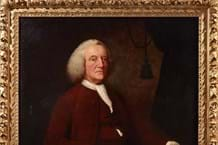Speaking at a press conference in Paris on October 3, Association President Dominique Chevalier slammed Unidroit as “unacceptable” and said it would have “perverse consequences” that would “penalise the whole of the art market” and “lead to the opposite result to that intended”.
The convention, which aims to counter art theft and illegal exports, has earned criticism in the past for shortcomings in its construction that could seriously disadvantage possessors of art and antiques who have acquired them in good faith and by legal means.
Chevalier claimed that Chapter 3 of the convention included “absurd clauses” that rendered the convention “contrary to the European Convention of Human Rights” and “anti-constitutional” in France. He vowed that, if the convention were ratified in France, the Syndicat would support and encourage challenges to its legality in the courts.
Chevalier said that the Syndicat proposed bilateral agreements between individual countries as the “only acceptable solution” to the problems Unidroit addressed. “Of course we wish to protect our profession but it goes well beyond that,” he said, citing tacit support from museum curators fearful that collectors would be too scared to lend objects for exhibitions if Unidroit became law.
Oriental dealer Christian Deydier, who has galleries in London and Paris, told journalists that major donations to the Musée Guimet have been put on hold pending the government’s decision.
The Syndicat has traditionally regarded political lobbying as something of a dirty word and over-energetic concept, but has been jerked into unwonted militancy by the prospect of Unidroit’s being discussed by the French Assemblée Nationale in the coming weeks, with the French Foreign Ministry understood to be pushing hard for the convention to be ratified without delay.
Forsaking its longstanding parochialism, the Syndicat has taken steps to “build a European front to fight against the ratification of the Unidroit convention in its present form” by signing recent agreements with TEFAF and the British Art Market Federation.
Parliamentary Select Committee investigations in the UK last year concluded that the British Government should accede to the UNESCO Convention which tackles the same issues but avoids much of the UNIDROIT controversy. Both the Select Committee and a later Government appointed panel of experts advised against acceding to UNDROIT for similar reasons to those now being expressed in France.
French dealers revolt over UNIDROIT
France’s Syndicat National des Antiquaires (National Dealers' Association) has called on the French government to reject the Unidroit convention, which enforces strict rules on the restitution of stolen art.




